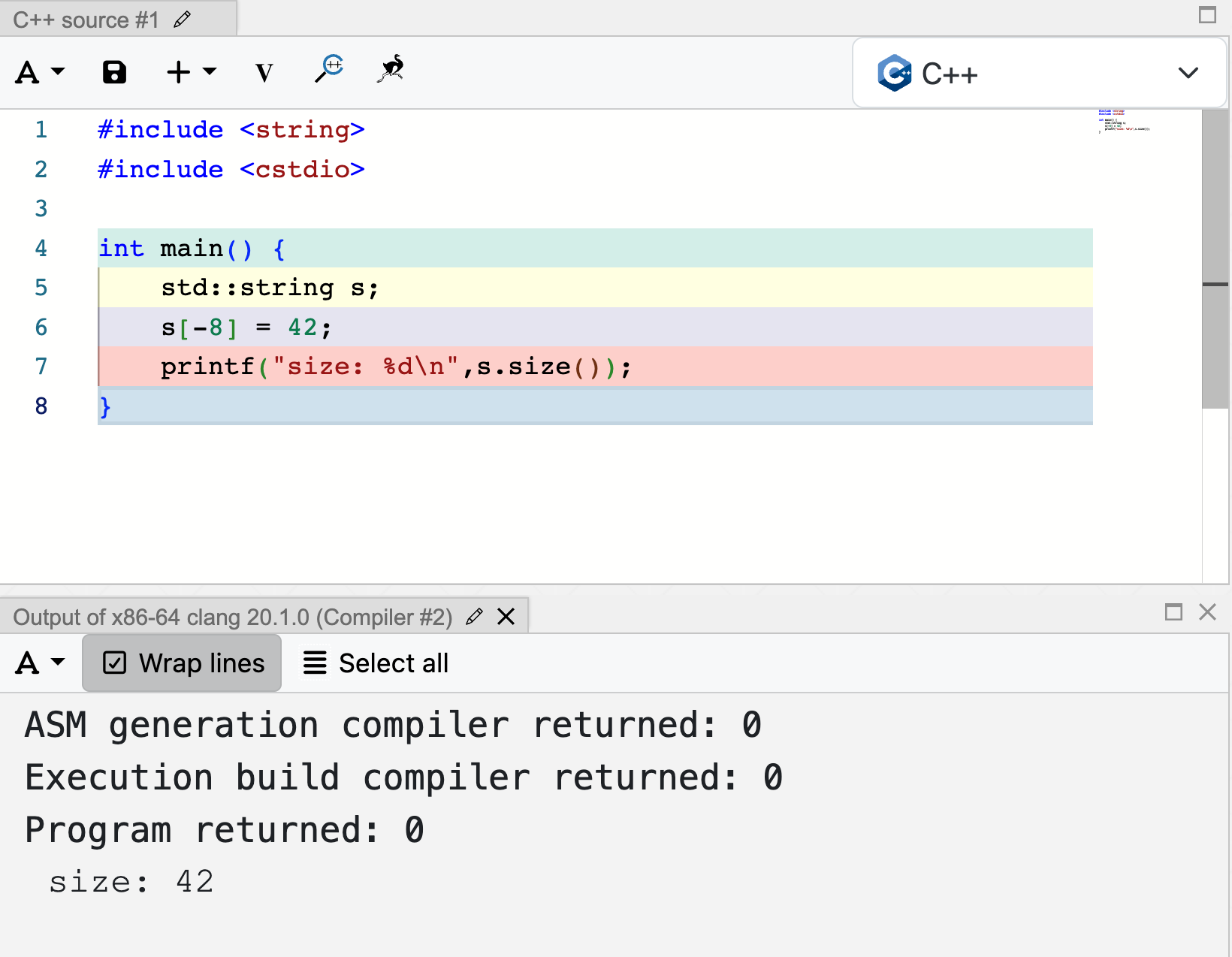Ned Batchelder @nedbat on why exceptions are better than returning status codes.
-
Ned Batchelder @nedbat on why exceptions are better than returning status codes.
Exceptions let you leave error handling code out of much of your code. Exceptions are transmitted automatically through layers that have no knowledge of them, so you can write useful code that has no error handling logic at all.
-
Ned Batchelder @nedbat on why exceptions are better than returning status codes.
Exceptions let you leave error handling code out of much of your code. Exceptions are transmitted automatically through layers that have no knowledge of them, so you can write useful code that has no error handling logic at all.
-
Ned Batchelder @nedbat on why exceptions are better than returning status codes.
Exceptions let you leave error handling code out of much of your code. Exceptions are transmitted automatically through layers that have no knowledge of them, so you can write useful code that has no error handling logic at all.
@amoroso @nedbat Exceptions are three GOTOs in a trenchcoat. :)
Seriously though, it wasn't until reading Object Oriented Software Construction by Bertrand Meyer that I became comfortable with exceptions. This the book that introduces the Eiffel language and Design by Contract (DbC). It's a great book - clear and insightful, engaging and readable for a textbook - very highly recommended.
Meyer's position was that you clearly define the scope of responsibility of a routine as well as its requirements and expectations. Exceptions are for exceptional conditions _only_ - issues where the routine's contract with its caller is broken. DbC makes you think more clearly and intentionally when you create a routine; part of that is clearly documenting which exceptions a routine can throw. One of my biggest complaints about OO systems is that there's no way to get a complete list of exceptions that could be emitted from a function call so you can effectively handle them; I'm not sure that's even possible. Either way it makes the code difficult to reason about. Not that status codes are any better in practice - the tradeoff seems to be between clear implementation code and routines with clearly documented behavior.
As noted in the post, some languages don't have exceptions; here's an exploration into error handling in Modern Fortran that tries to do better than just returning an integer https://matthiasnoback.nl/2025/07/fortran-errors-and-error-handling-part-1-exploration/
-
@amoroso @nedbat Exceptions are three GOTOs in a trenchcoat. :)
Seriously though, it wasn't until reading Object Oriented Software Construction by Bertrand Meyer that I became comfortable with exceptions. This the book that introduces the Eiffel language and Design by Contract (DbC). It's a great book - clear and insightful, engaging and readable for a textbook - very highly recommended.
Meyer's position was that you clearly define the scope of responsibility of a routine as well as its requirements and expectations. Exceptions are for exceptional conditions _only_ - issues where the routine's contract with its caller is broken. DbC makes you think more clearly and intentionally when you create a routine; part of that is clearly documenting which exceptions a routine can throw. One of my biggest complaints about OO systems is that there's no way to get a complete list of exceptions that could be emitted from a function call so you can effectively handle them; I'm not sure that's even possible. Either way it makes the code difficult to reason about. Not that status codes are any better in practice - the tradeoff seems to be between clear implementation code and routines with clearly documented behavior.
As noted in the post, some languages don't have exceptions; here's an exploration into error handling in Modern Fortran that tries to do better than just returning an integer https://matthiasnoback.nl/2025/07/fortran-errors-and-error-handling-part-1-exploration/
@arclight Thanks for the insight.
